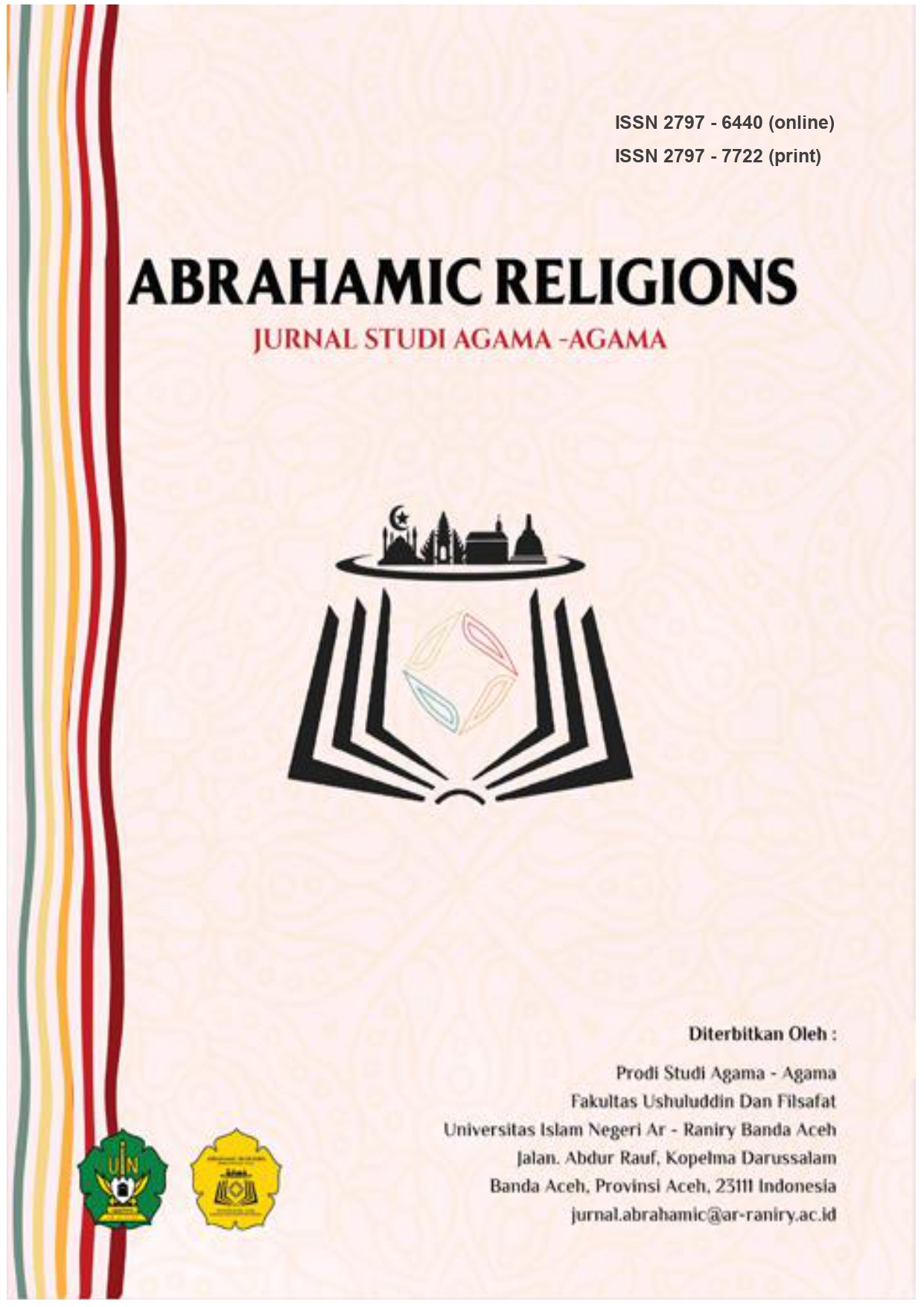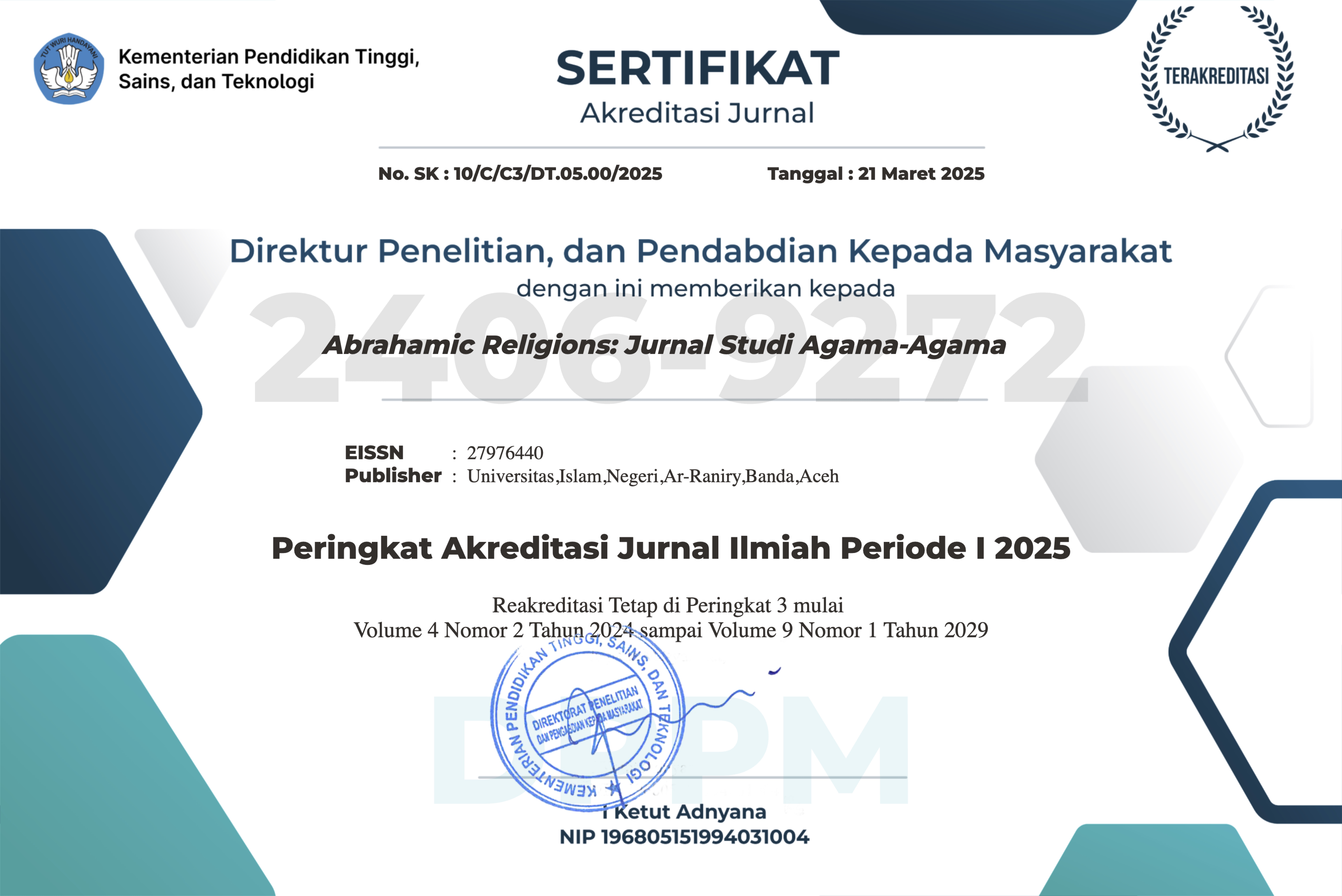Komodifikasi Agama: Praktik Bisnis Lokal di Kawasan Keramat Tuan Guru Babussalam, Sumatera Utara
DOI:
https://doi.org/10.22373/arj.v3i2.17562Keywords:
Komodifikasi, Agama, keramat, BabussalamAbstract
Religion is often believed to be a source of values that can inspire the reality of human life. However, in another view, religion is also in line with the changes that have resulted in the degradation of the role of religion in the public sphere. Privatization of religion comes through various modes including commodification of religion. In a sociological context, religion is not merely an ideological doctrine but appears in the form of a collection of material. The research in this article is the type of research used is field research with an anthropological approach. This study uses a thick description approach. The results of the study show that commodification in the area has two positive and negative impacts. The impact of this area has become a marketing strategy for local business actors in particular and the outside community, introducing Sufism scholars who have brought the Naqsbandi Order to Langkat, as souvenirs for visitors, and helping the less fortunate, while the negative impact is that it seems to defame a sacred place.
Abstrak
Agama seringkali diyakini sebagai sumber nilai yang dapat menginspirasi dalam realitas kehidupan manusia. Namun, dalam pandangan lain, agama juga sejalan dengan perubahan yang telah mengakibatkan degradasi peran agama dalam ruang publik. Privatisasi agama hadr melalui berbagai modus diantaranya Komodifikasi agama. Dalam konteks sosiologi, agama bukan hanya sekadar sebagai suatu doktrin Ideologis namun muncul dalam bentuk seperangkat material. Penelitian dalam artikel ini ialah Jenis penelitian yang digunakan adalah penelitian lapangan dengan pendekatan antropologi. Penelitian ini menggunakan pendekatan thick description. Hasil penelitian menunjukkan bahwa komodifikasi dalam daerah tersebut ada dua yaitu dampak positif dan negatif. Dampak daerah ini menjadi strategi pemasaran bagi pelaku usaha lokal khususnya maupun masyarakat luar, mengenalkan tokoh ulama tasawuf yang telah membawa tarikat Naqsabandi ke Langkat, sebagai cendramata bagi pengunjung, dan membantu masyarakat yang kurang mampu, sedangkan dampak negatifnya yaitu terkesan mencemarkan nama baik tempat keramat.
References
Ahmad Fuad Said. (1976). Sejarah syaikh Abdul Wahab Rokan Al-Khalidi Naqsabandi Tuan Guru Babussalam. Pustaka Babussalam.
Bauto, L. M. (2016). PERSPEKTIF AGAMA DAN KEBUDAYAAN DALAM KEHIDUPAN MASYARAKAT INDONESIA (Suatu Tinjauan Sosiologi Agama). JURNAL PENDIDIKAN ILMU SOSIAL, 23(2). https://doi.org/10.17509/jpis.v23i2.1616
Chukwuma Uhembe, A., & Clement, A. (2014). Materialism and Commodification of the Sacred: a Political Economy of Spiritual Materialism in Nigeria. European Scientific Journal, 10(14).
Daradjat Zakiyah. (2005). Ilmu Jiwa Agama. Bulan Bintang.
Darojatun, R., Mukarom, Z., & Muhibuddin, M. (2022). Komodifikasi Agama dalam Layanan Aqiqah di Akun Instagram @aqiqahnurulhayat. Wardah, 23(2). https://doi.org/10.19109/wardah.v23i2.14698
Departemen Pendidikan dan Kebudayaan. (1995). Kamus Besar Bahasa Indonesia. Bali Pustaka.
Faisal Ismail. (2018). Paradigma Kebudayaan Islam: Studi Kritis dan Refleksi Historis. Titian Ilahi Press.
Fauzi, A. N. (2019). KOMODIFIKASI AGAMA TERHADAP PEMBACAAN (KHATAMAN) ALQURAN AIR KEMASAN KH-Q PT. BUYA BAROKAH. Diya Al-Afkar: Jurnal Studi Al-Quran Dan Al-Hadis, 7(02). https://doi.org/10.24235/diyaafkar.v7i02.5802
Fuad Said. (1988). Sejarah Syaika A. Wahab Tuan Guru Babussalam. Pustaka Babussalam.
J.R Ranco. (2010). Metode Penelitian Kualitatif, Jenis, Karakteristik dan Keunggulannya. Grasindo.
Kholida, M., & Rodiah, I. (2023). Komodifikasi Agama: Sebuah Strategi Pemasaran. Lab, 6(02). https://doi.org/10.33507/labatila.v6i02.1026
Lexi J. Moeleong. (2002). Metodologi Penelitian Kualitatif. Remaja Rosdakarya.
Nurdin, F., & Fazal, K. (2022). Fungsi dan Makna Tradisi Reuhab pada Masyarakat Gampong Kuta Aceh. Jurnal Sosiologi USK (Media Pemikiran & Aplikasi), 16(2). https://doi.org/10.24815/jsu.v16i2.27275
Pribadi, Y., & Ghufron, Z. (2019). Komodifikasi Islam dalam Ekonomi Pasar: Studi Tentang Muslim Perkotaan di Banten. Afkaruna, 15(1).
Rudy Rustandi, L., Sunan Kalijaga Yogyakarta Jl Laksda Adisucipto, U., Sleman, K., & Istimewa Yogyakarta, D. (2020). Disrupsi Nilai Keagamaan dan Komodifikasi Agama di Era Digital. SANGKÉP: Jurnal Kajian Sosial Keagamaan, 3(1). https://doi.org/10.20414/sangkep.v2i2
Zaenurrosyid, A., & Ulfiana, L. Z. (2016). Komodifikasi Agama Dalam Islamic Tourism dan Aktivitas Ekonomi. Jurnal Islamic Review, 5(1).
Zailani, M. R., & Ulinnuha, R. (2023). Komodifikasi Agama sebagai Identitas Kesalehan Sosial. Jurnal Riset Agama, 3(1). https://doi.org/10.15575/jra.v3i1.23519
Downloads
Additional Files
Published
Issue
Section
License
Authors who publish in this Journal agree to the following terms:
- Authors retain copyright and grant the journal right of first publication with the work simultaneously licensed under Attribution-ShareAlike 4.0 International (CC BY-SA 4.0) allows others to share the work with an acknowledgment of the work's authorship and initial publication in this journal.
- Authors are able to enter into separate, additional contractual arrangements for the non-exclusive distribution of the journal's published version of the work (e.g., post it to an institutional repository or publish it in a book), with an acknowledgment of its initial publication in this journal.
- Authors are permitted and encouraged to post their work online (e.g., in institutional repositories or on their website) prior to and during the submission process, as it can lead to productive exchanges, as well as earlier and greater citation of published work. (See The Effect of Open Acces)















